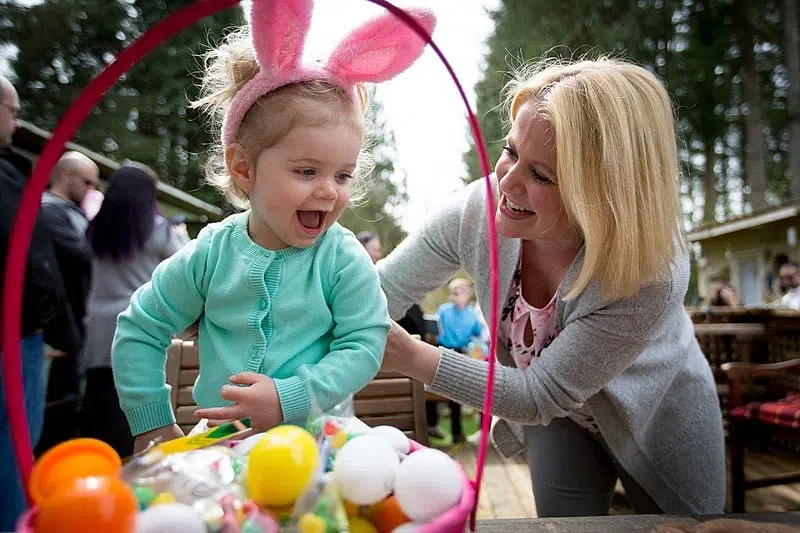Even if you don’t celebrate Easter, chances are you’re familiar with its traditions: Chocolate bunnies and egg hunt. Scrabbling through the grass and bushes for brightly colored hard boiled eggs is one of the most recognizable Easter traditions out there, but why do we have Easter egg hunts? Like many of the holiday’s best-known customs, the Easter eggs and rabbits dates back thousands of years. Although most of us know it as a Christian holiday, Easter is believed to have its roots in paganism — hence the existence of an Easter bunny despite no mention of an egg-laying hare in the good book. The word “Easter” is thought to come from the Teutonic goddess of springtime Eostre, who was commonly associated with rabbits thanks to their connection with fertility; early Germanic cultures believed that Eostre and her egg-laying rabbits heralded the beginning of spring. When Christianity made its way into Northern Europe in the 15th century, the association stuck around even as paganism was overtaken. The egg, a symbol of life and rebirth for thousands of years, came to represent the resurrection of Jesus Christ — in fact, Easter eggs were traditionally dyed red to symbolize his blood. Today, Easter is a celebration of his resurrection as well as the end of Lent, a 40-day period in which many Christians give up certain vices or habits.
So what does all of this have to do with the Easter egg hunt? Not much. Its roots aren’t totally known, but it’s widely believed that egg hunts date back to the 1700s, when the Pennsylvania Dutch believed in an egg-laying hare. Because this precursor to the Easter Bunny laid eggs in the grass, children were encouraged to build nests for it to lay in — and then search for the eggs it left behind. So there you have it!. There’s more to traditions then you realize…….Ed
Source: Eliza Castile/Photo: Wikimedia Common








Comments